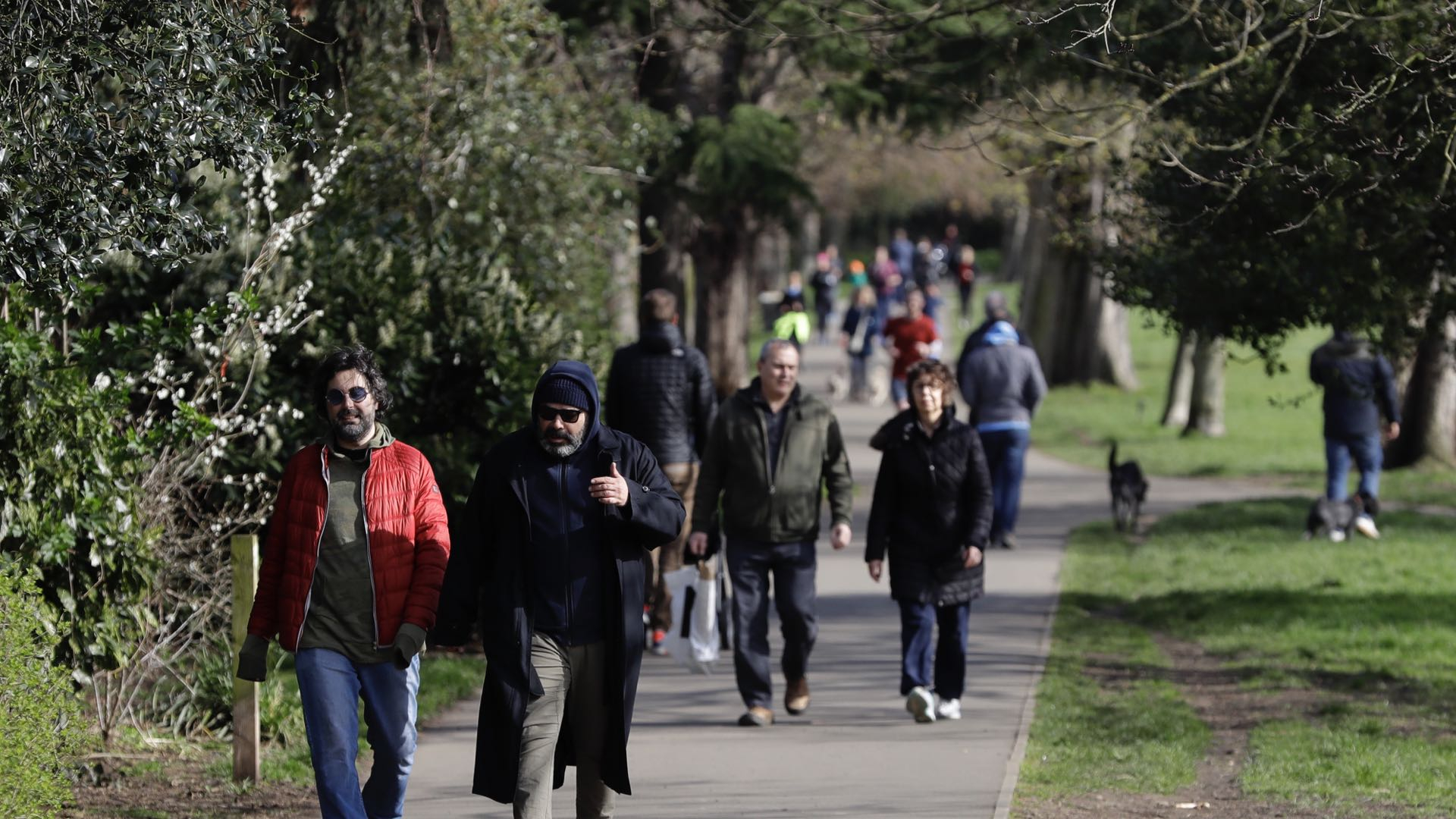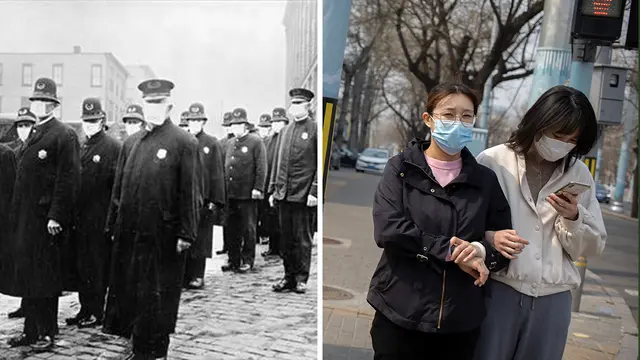During the 1918 influenza pandemic in the U.S., mandatory social distancing and cheap white gauze masks controlled the spiraling death rate in the country.
Nearly 102 years later, when the country reels under another pandemic caused by a novel coronavirus, it's rare to see people using masks. Most of the European countries, also witnessing a rising number of deaths, have refused to enforce similar measures.
Behind the limited use of face masks in both regions are the guidelines by the World Health Organization and Centers for Disease Control (CDC), U.S.
Both believe such protective gear are essential for health professionals, caregivers and infected persons. "If you are healthy, you only need to wear a mask if you are taking care of a person with suspected 2019-nCoV infection," says the WHO.
The WHO fears that the unscientific use, handling and disposal of masks used during the pandemic could do more harm than containing the virus.
The CDC also maintains a similar stand. Some of its senior officials concerned over the panic buying after the coronavirus outbreak, feel mass consumption of mask could lead to shortages among frontline health workers treating COVID-19 patients.
To mask or not to mask
But the evidence from the countries that have successfully flattened the coronavirus epidemic curve show masks contributed to containing the transmission of the virus.
China, South Korea and Japan actively promoted the use of masks along with testing, ensuring social distancing and washing hands.
While China made it compulsory for everyone to wear a mask, South Korea stopped the export of masks to ensure its availability in the country. Japanese used it in such a large quantity that it caused the problem of littering.
To ensure the supply of N95 masks to frontline health workers, China routed its supply to hospitals. Only surgical masks were made available for mass use.
"The big mistake in the U.S. and Europe, in my opinion, is that people aren't wearing masks," George Gao, director-general of the Chinese Center for Disease Control and Prevention (CDC), who played a crucial role in controlling the pandemic in China, told theScience magazine.
The use of masks also becomes essential because of the virus causing asymptomatic infections and transmission through aerosols. A group of researchers echoed similar views, published in the journal Lancet Respiratory Medicine.
Time has arrived for governments and public health agencies to formulate a rational decision on appropriate use of face masks to complement their recommendations on other preventive measures, such as hand hygiene, they wrote in the journal.
"Universal use of face masks could be considered if supplies permit."

People use a park after indoor gyms were asked to close by the government to help limit the spread of COVID-19 in London, Saturday, March 21, 2020. /AP
A tectonic shift in the pipeline
With coronavirus cases rising, both WHO and CDC are weighing to prepare new guidance on the use of face masks by people.
On Monday, Robert Redfield, director of the Centers for Disease Control and Prevention (CDC), in an interview with NPR for revealed that they might recommend people to use masks in a bid to control the rising coronavirus cases.
In a briefing to Chatham House on March 31, infectious disease expert Prof. David Heymann said there is right now a debate about the usefulness of masks because Hong Kong has provided some evidence that masks may be useful in protecting individuals from infection.
"The WHO is opening up its discussion again looking at the new evidence to see whether or not there should be a change in the way it's recommending masks should be used," Heymann told BBC News.
As pressure on health organizations mounts, U.S President Donald Trump also hinted at the possibility of a nation-wide wise use of masks.
"We are not going to be wearing masks forever, but it could be for a short period of time after we get back into gear. I could see something like that happening for a period of time," Trump said during a media briefing on coronavirus on Monday.
Air pollution role in curbing the coronavirus cases
Even if the WHO and CDC change their guidelines, history suggests, it won't be an easy task to implement it.
As social distancing measures showed a limited effect in controlling the transmission in 1918, the government made policy changes to enforce the use of masks.
Tuscon, a city in Arizona, witnessing the uncontrolled spread of the pandemic, passed strict orders making the masks mandatory.
"No person shall appear in any park, street, place where any business is transacted, or in any other public place within the city of Tucson, wrote Bradford Buckingham, in a journal article published by Arizona Historical Society.
Once the pandemic ended, people in Western countries gave up the habit of using masks. But Severe Acute Respiratory Syndrome (SARS) in the 2002 outbreak triggered the practice of covering the face in Asian countries.
But the real game-changer ensuring the use of masks in the region is the air pollution. Japanese started using it since 1950 when coal-fired power stations and fossil-fuel-powered vehicles emitted pollutants choking the residents.
China witnessed heavy smog during winter months, in recent years smog has been brought under control. But on bad air days, residents pull out their masks to shield themselves from toxic pollutants.
"The need to use masks against smog definitely means that N95 masks are available in ordinary grocery stores and people are used to wearing them, which helped with adoption during the coronavirus crisis," Lauri Myllyvirta, a lead analyst with Center for Research on Energy and Clean Air told CGTN.
"The widespread use of masks during the epidemic has also meant a lot of avoided air pollution exposure."
(Cover: There was widespread use of masks to control the influenza pandemic in the U.S in 1918 (L), similar measures, along with social distancing, helped many Asian countries to flatten the coronavirus curve (R). /Reuters /AP.)
(CGTN)
 简体中文
简体中文





